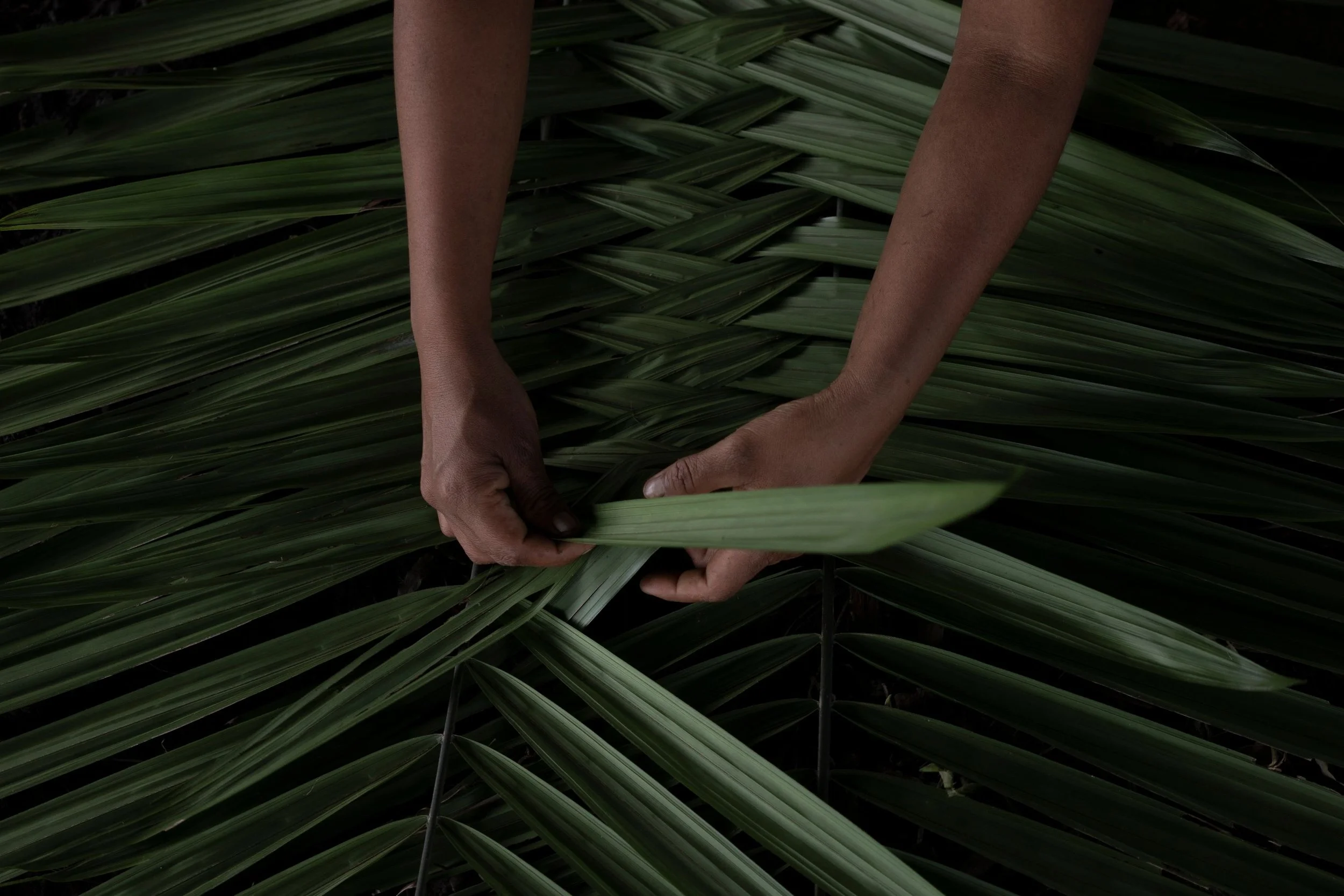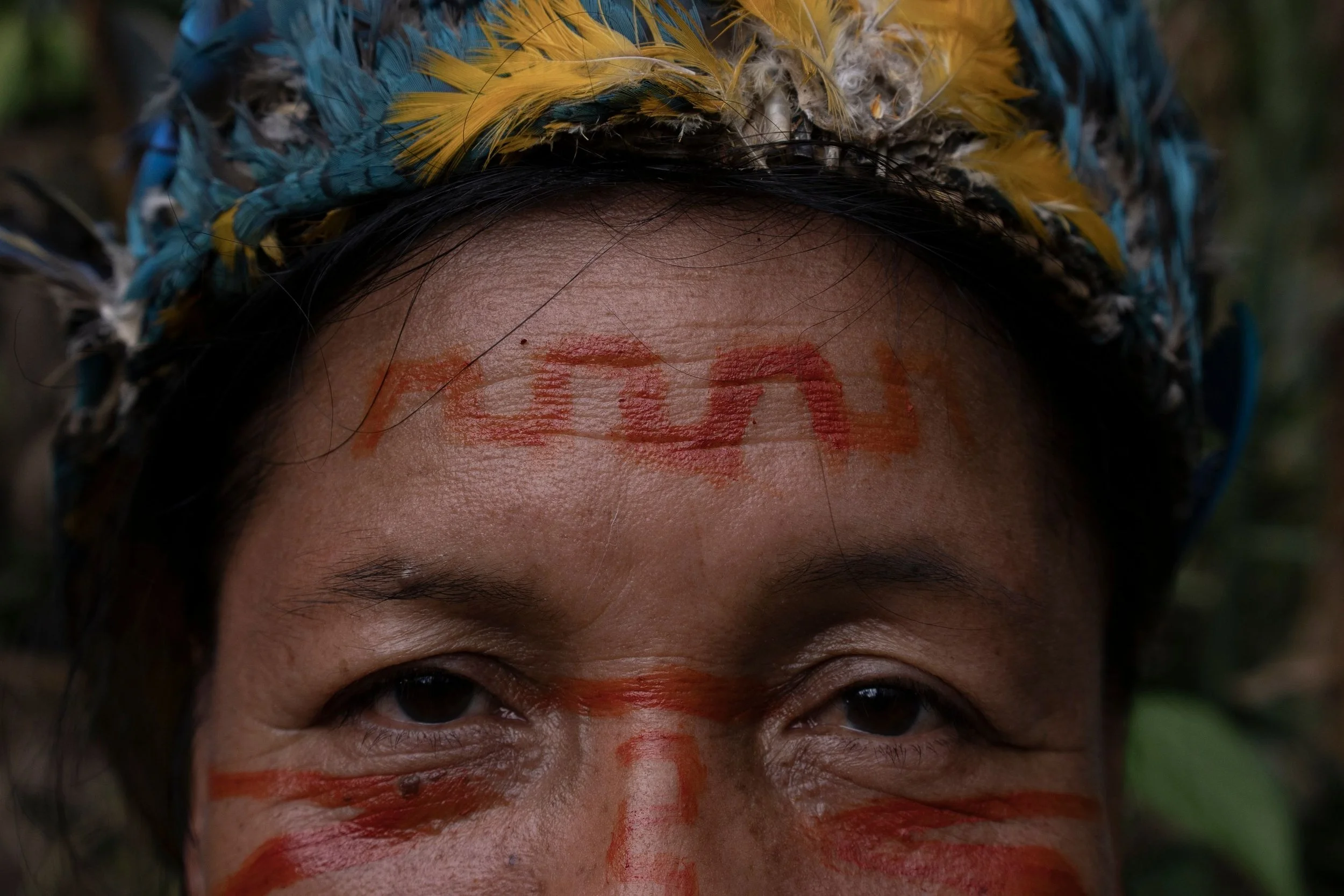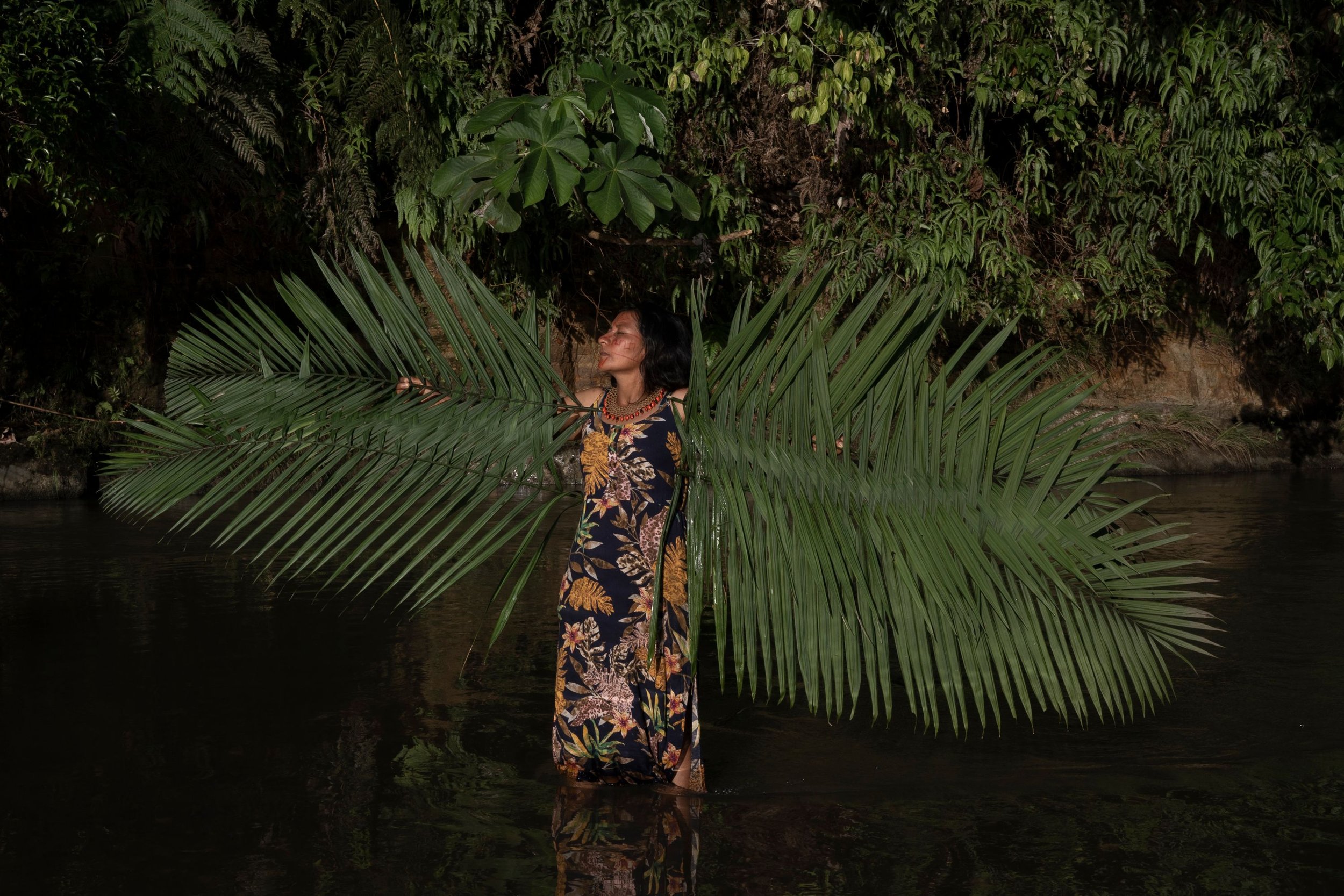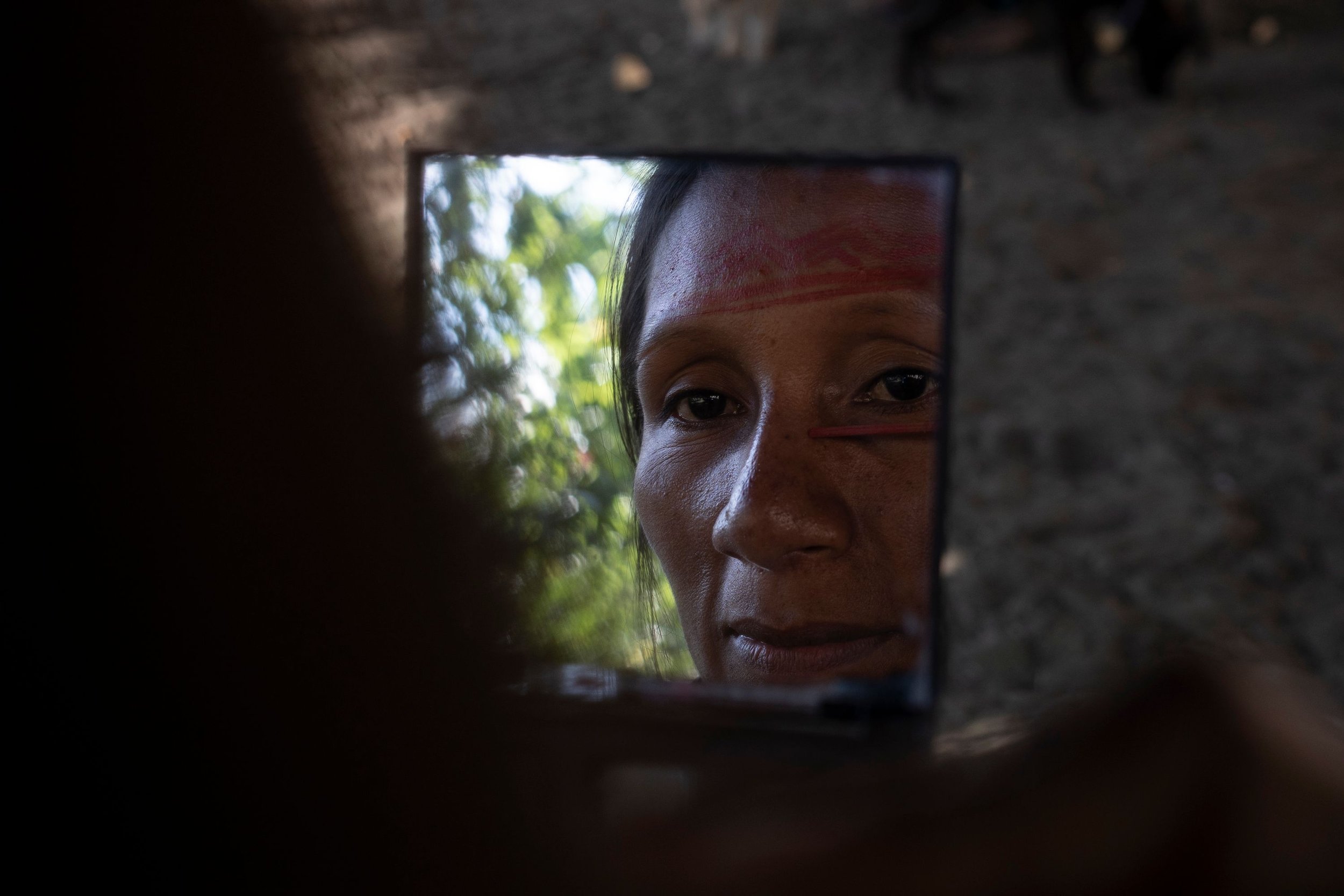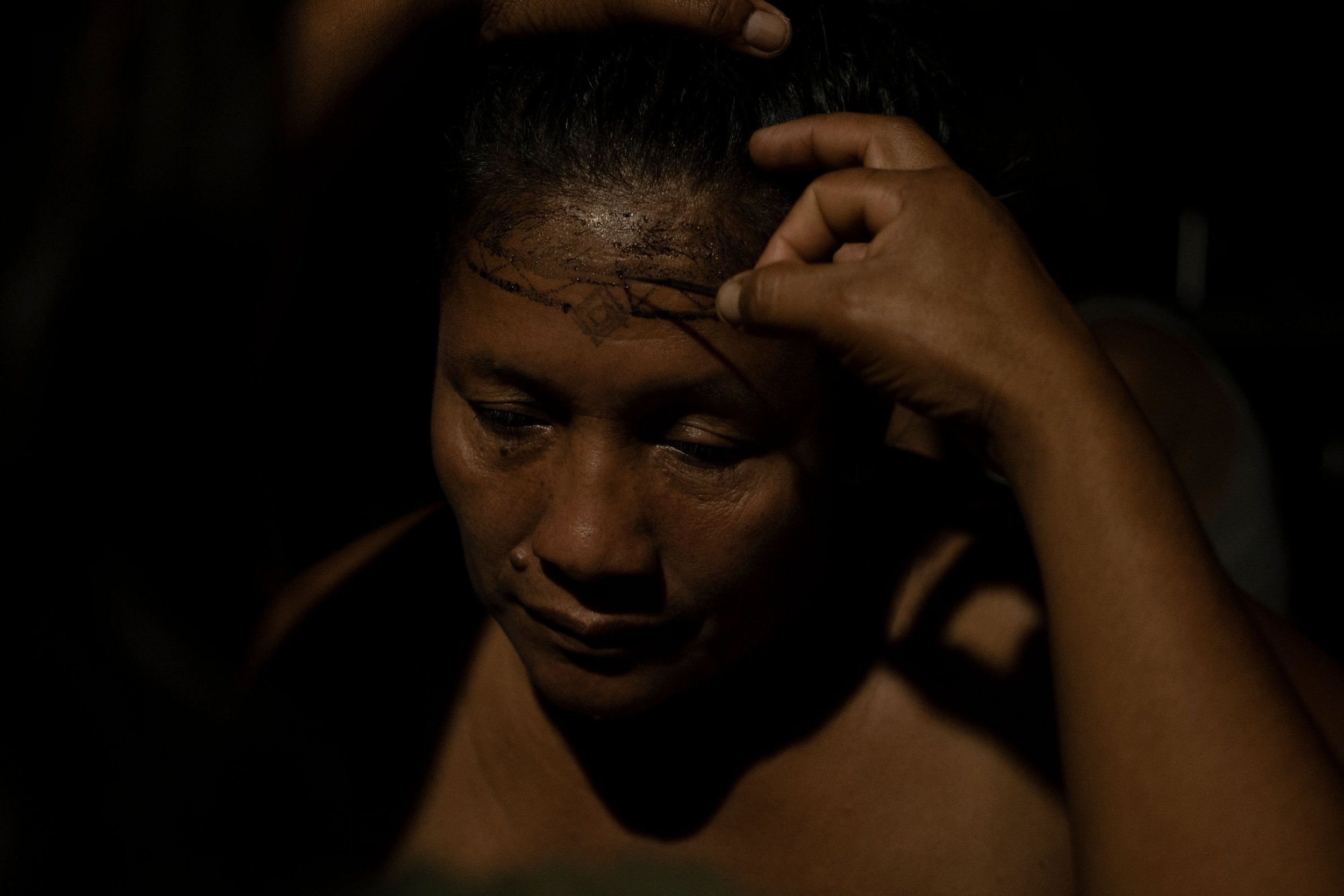
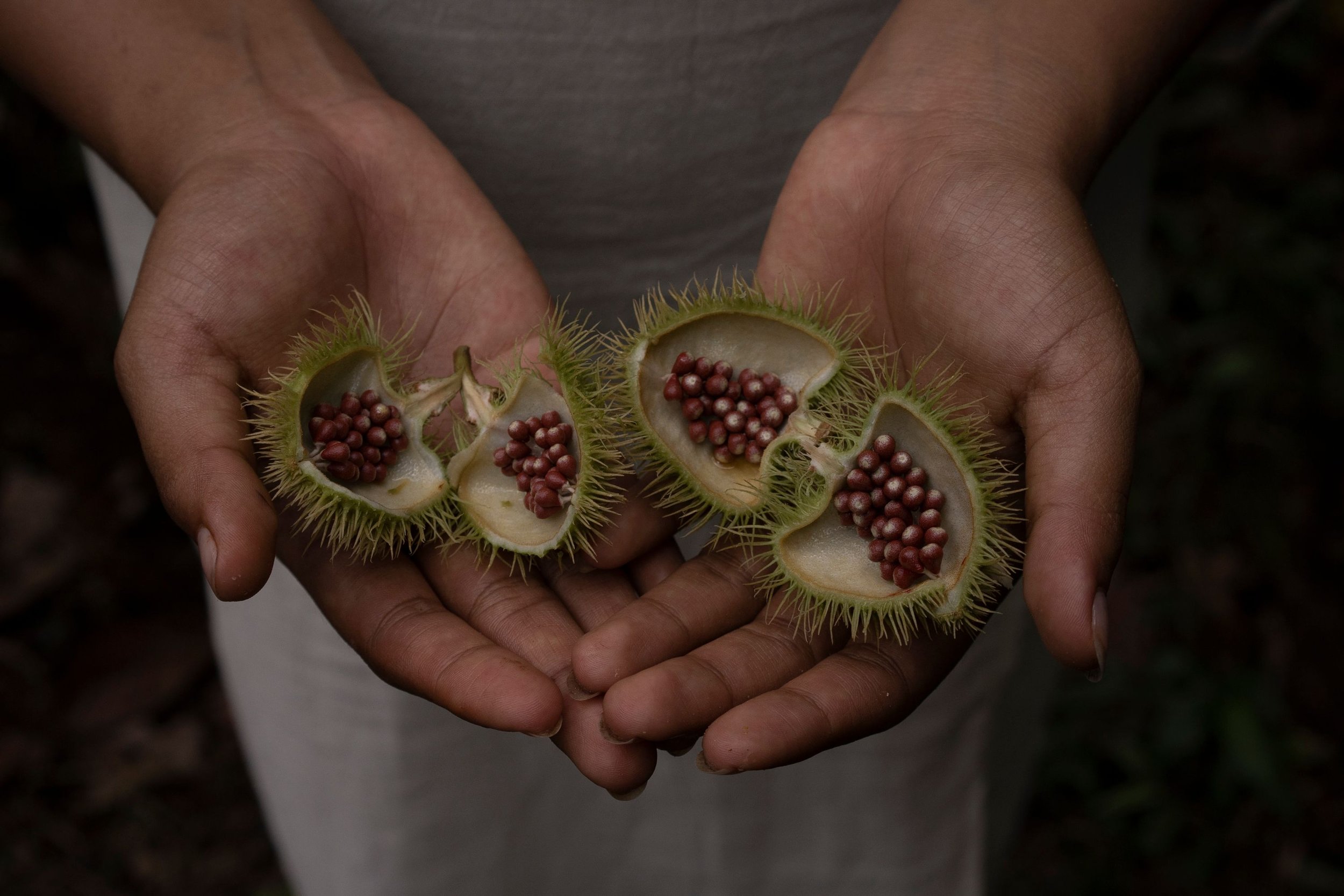

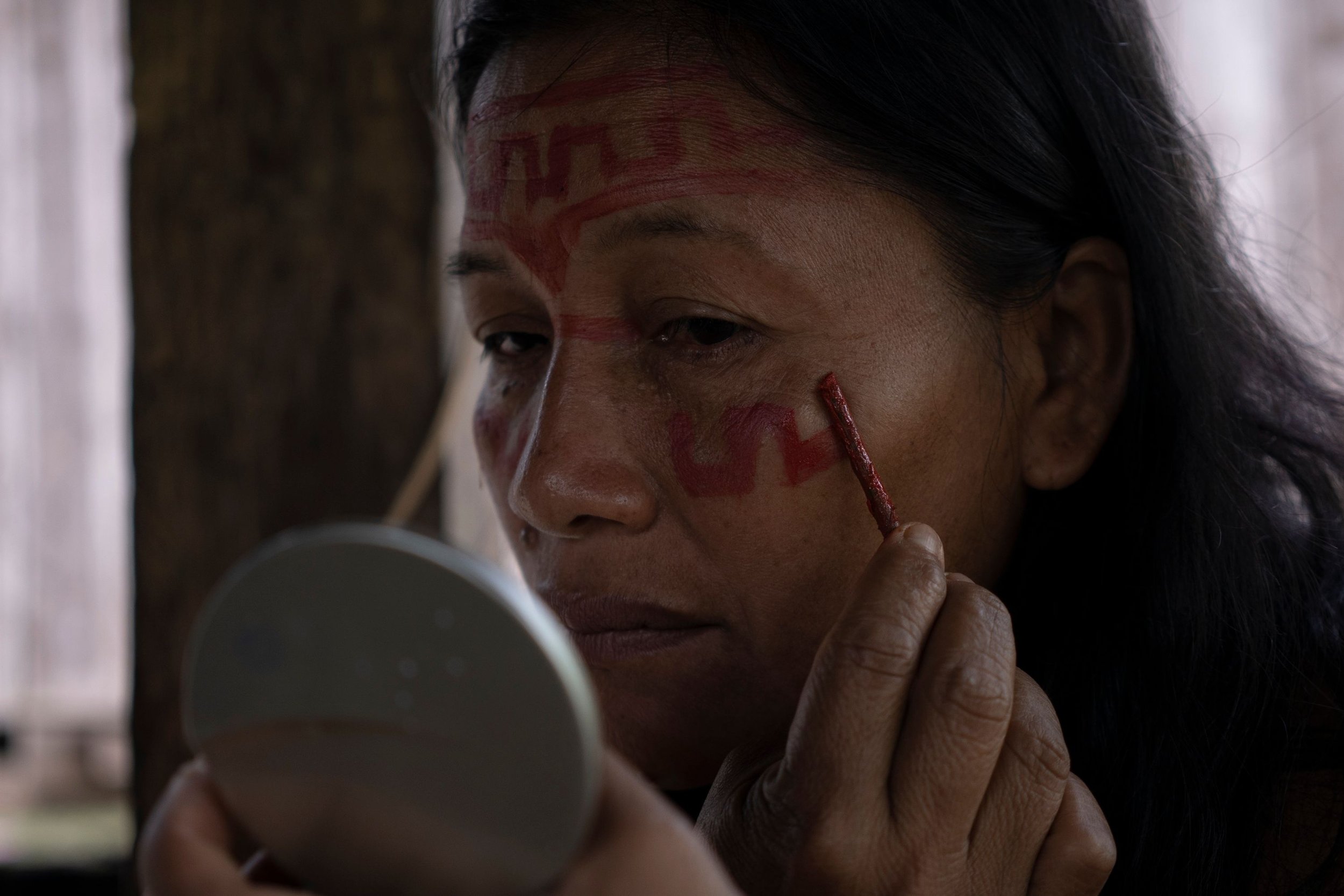
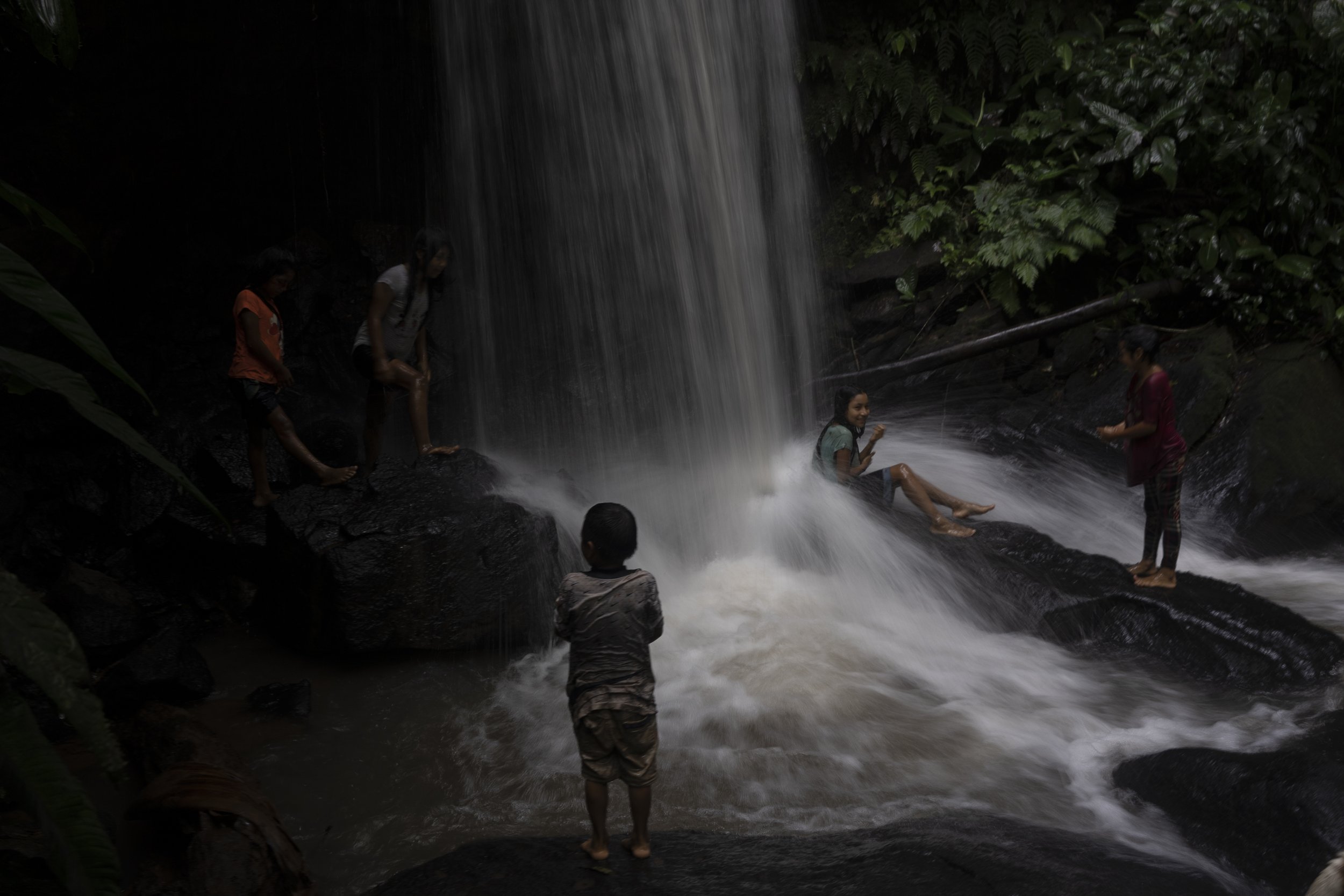
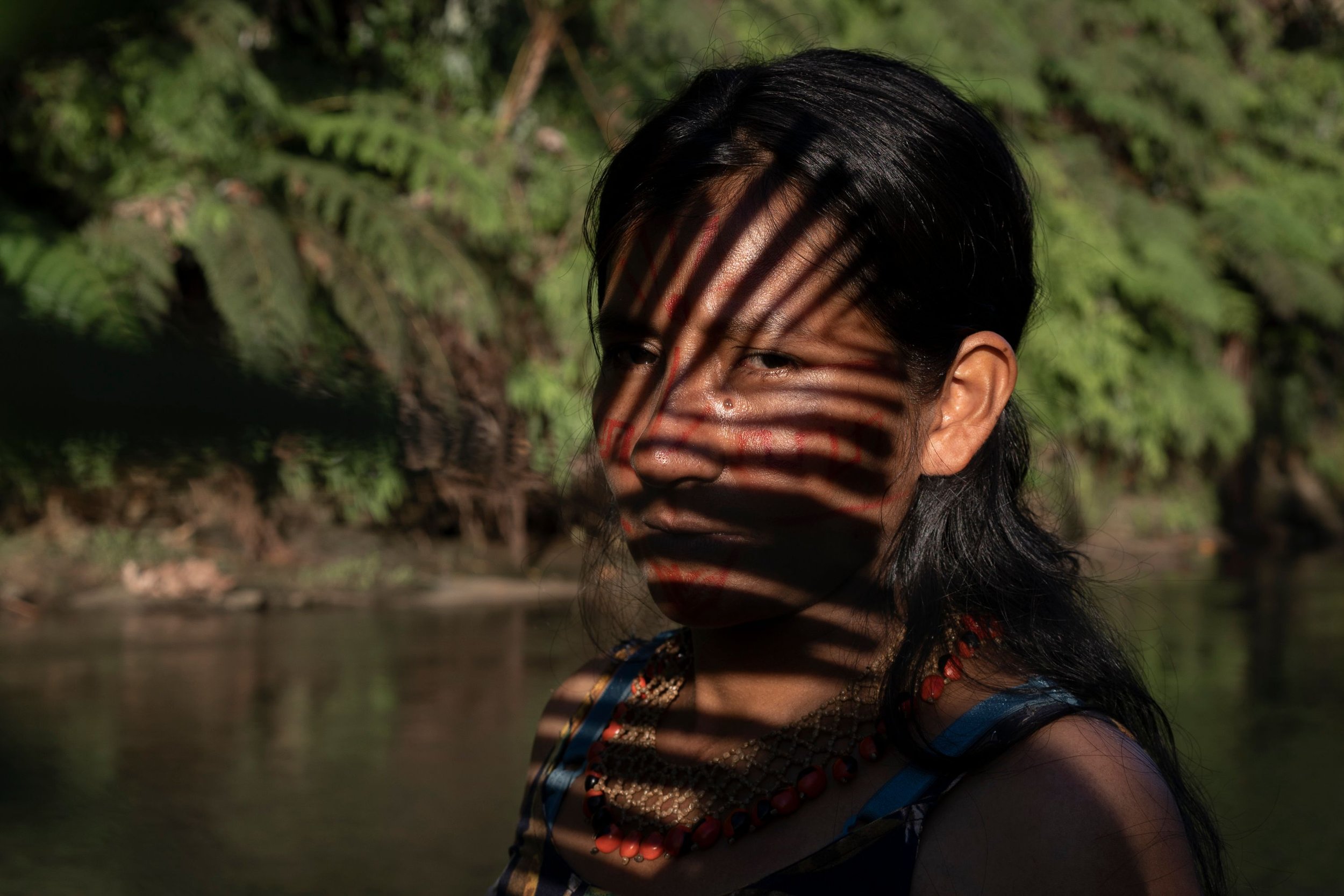
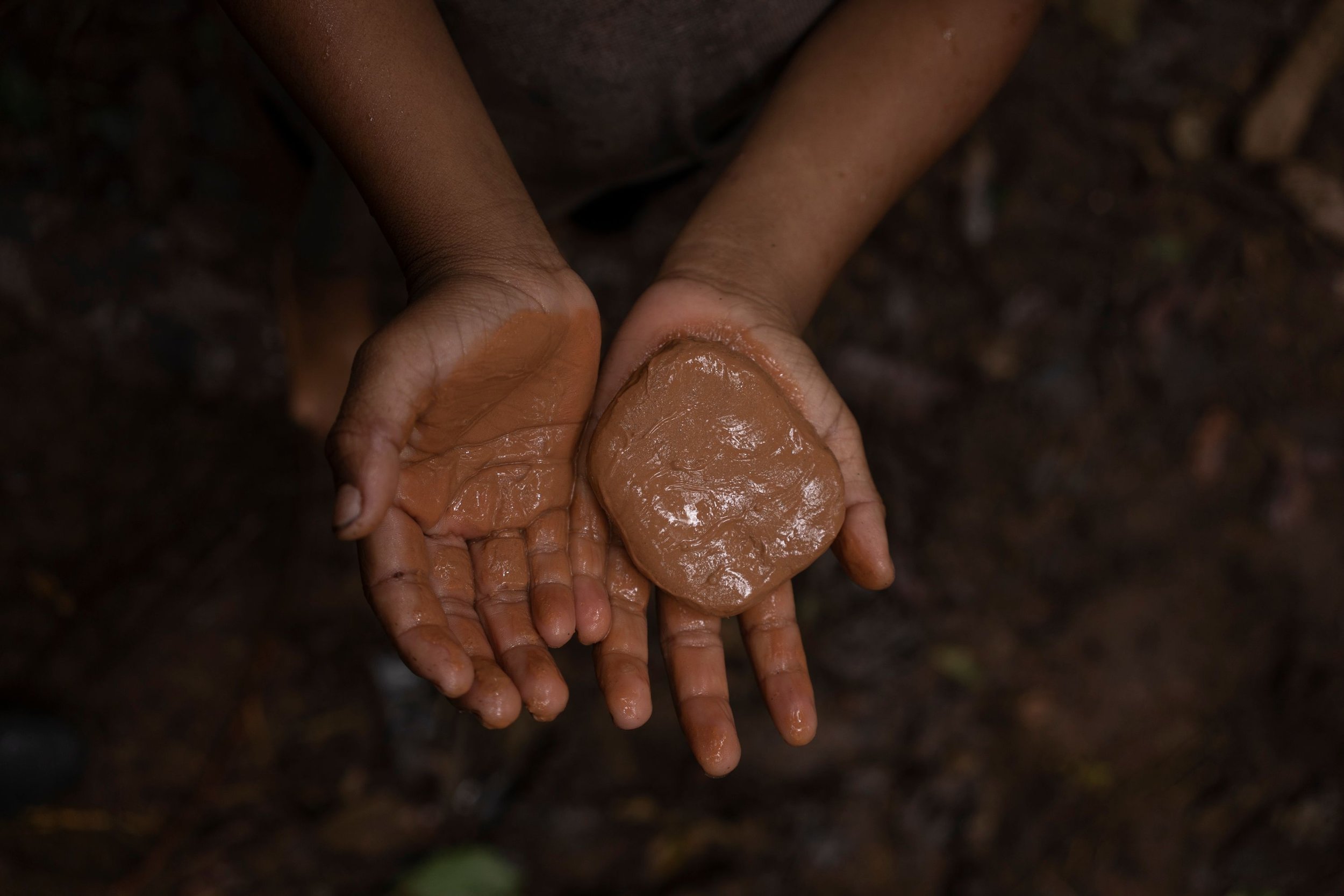
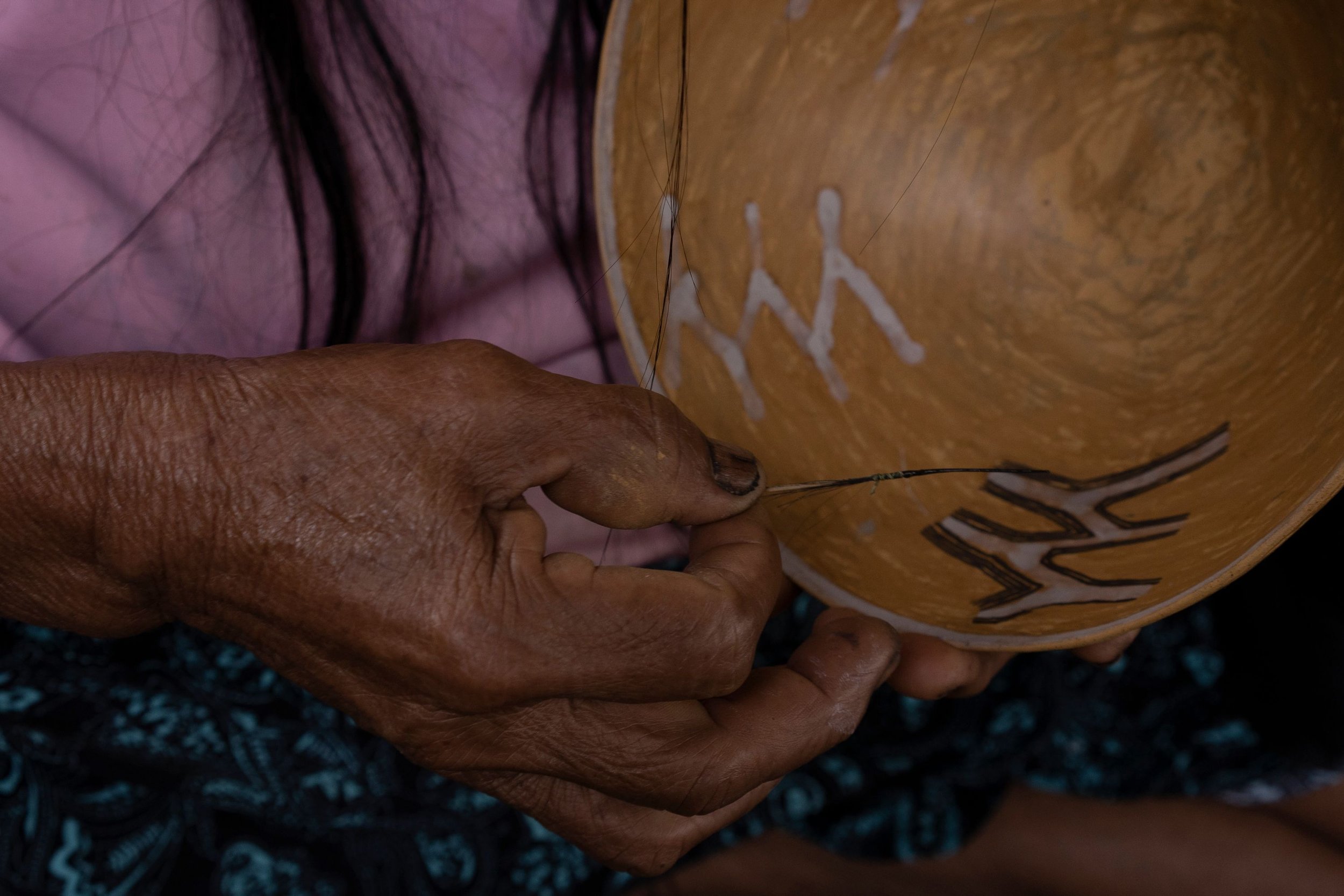
Behind the Scenes with Tatiana Lopez
IMAGES BY TATIANA LOPEZ
WORDS BY TAMARA BLAZQUEZ HAIK
Witsa ikichanu or “living well” is one of the many ancestral teachings that Sapara women embrace. For them, living well entails protecting the energies of the forest, the river, and the wind, connecting to nature and spirits through dreams.
The Land and Water defense history pertaining to the Sapara people takes us back to the early twentieth century, when religion, colonization and the rubber boom forced the Sapara to disperse to different parts of the Pastaza province, leading the Ecuadorian state to believe that they had all but disappeared. It wasn’t until the 1990s that the Sapara culture was once more revitalized and the Sapara began reoccupying their land, resulting in UNESCO's recognition of the Sapara people as part of their “Intangible Heritage of Humanity” program in 2001.
However, Ecuador’s colonial and extractivist mindset has been threatening the Sapara people since 2012, when the state allowed for oil exploration in Sapara territory. In 2021, the Ecuadorian Ministry of Agriculture tried to despoil 70% of the Sapara territory – 650,900 acres of primary rainforest – for their extractivist ventures. Thus, the Sapara Nation presented an “Action of Protection” to recover their territory, and thankfully, a judge ruled in their favor. The Ministry of Agriculture appealed the judge’s decision, but to no avail. In December of 2021, the Provincial Court of Pastaza ratified the sentence in favour of the Sapara Nation.
Self-portrait by Tatiana Lopez.
Tatiana Lopez, an Ecuadorian visual artist, storyteller and anthropologist that has been working with the Sapara women in the Pastaza province in Ecuador since 2020. “While the Sapara continue their resistance and efforts in preserving the oil under the ground, Ecuador continues to rely heavily on extractivism, and thus, the process of dismantling capitalism and the Sapara’s land reclaiming and self-determination over natural resources continue.”
“Sapara Women (Re)Weave Their Ancestral Knowledge to Reclaim Land Rights” is the title of the second chapter of Tatiana’s long-term project, called "In Between Dreams the Forest Echoes the Song of the Burning Anaconda.” This is her first documentary work as a storyteller.
It was for this second chapter of the documentary that Tatiana was awarded her PWB Revolutionary Storyteller Grant, allowing her to return to the Sapara community with whom she had previously worked. She was also able to visit other communities to learn even more about the Sapara women’s ways of life, their struggles, and their stories of resilience and coexistence with the natural world. “The grant also provided an avenue to raise awareness on how securing land rights is fundamental in preserving healthy ecosystems, protecting Indigenous People's traditional practices and visually representing who Sapara women are and their fight to preserve the Amazon rainforest. Being part of the PWB community is such an honor and the whole team has been very supportive of this project, which is also a big inspiration for me. Through the grant, I was able to create new work, make new connections, and grow as a storyteller.”
Tatiana’s project was not only inspired by the connection between the Sapara woman and nature conservation, but also the connection that the Sapara women, as Indigenous People, maintain with both dreams and the spirit side of everything in life. For the Sapara people, everything is interconnected in a balanced web: nature, spirits, humans and non-humans, where the forest is the centre of life. They firmly believe that we all share a responsibility to protect our planet.
The experience of working closely with the Sapara women and their stories taught Tatiana a lot of patience as well as to let go of perfectionism when putting together this story, as in her own words: “I wanted everything to be perfect. But, of course, this always comes with a lot of pressure, so I had to learn to really let go of that pressure and focus on the experience itself while enjoying the process of creating the story rather than focusing too much on the -what if things don't go as planned-.”
Another important lesson for Tatiana was learning how to cultivate a culture of reciprocity while opening and sharing spaces with Indigenous women, recognizing the role they play in the defense of the land as a way of not only raising awareness of Indigenous people’s guardianship over the forest, but also as a big step into creating gender inclusivity and safe spaces for girls and women in the Land and Water Defense movement.
“While the Sapara continue their resistance and efforts in preserving the oil under the ground, Ecuador continues to rely heavily on extractivism, and thus, the process of dismantling capitalism and the Sapara’s land reclaiming and self-determination over natural resources continue.”
Tatiana intends to keep on working alongside Sapara women while seeking more media outlets in which to publish her storytelling work. She will continue to raise awareness of the Sapara people’s struggle to reclaim their land. She would also like to help them raise the funds to build an Artisan and Medicine House in one of these communities and eventually create a third chapter for her project. Tatiana’s main goal for this project is to look for funding to self-publish a book showcasing the Sapara identity.
“For the Sapara people, everything is interconnected in a balanced web: nature, spirits, humans and non-humans, where the forest is the centre of life. They firmly believe that we all share a responsibility to protect our planet.”
Tatiana hopes that this collaborative work created with the support of the Revolutionary Storyteller Grant opens up conversations on how we connect to nature, how we can go back to our roots and to our ancestry, and how we can look at the world beyond a colonial mindset.
Tatiana’s future projects include expanding on the themes of dreams, memory and identity, while also working on researching women weavers in the Ecuadorian Andes while eventually starting a visual project on this subject.
This story was created with the support of Aesop and our Revolutionary Storyteller Grant.
To learn more about her work, visit her website and view our “Mother Earth Speaks” exhibit, featuring Tatiana. To support the creation of a Sapara Women's Artisan and Medicine House, which is intended to be a place for collective healing, head here.

